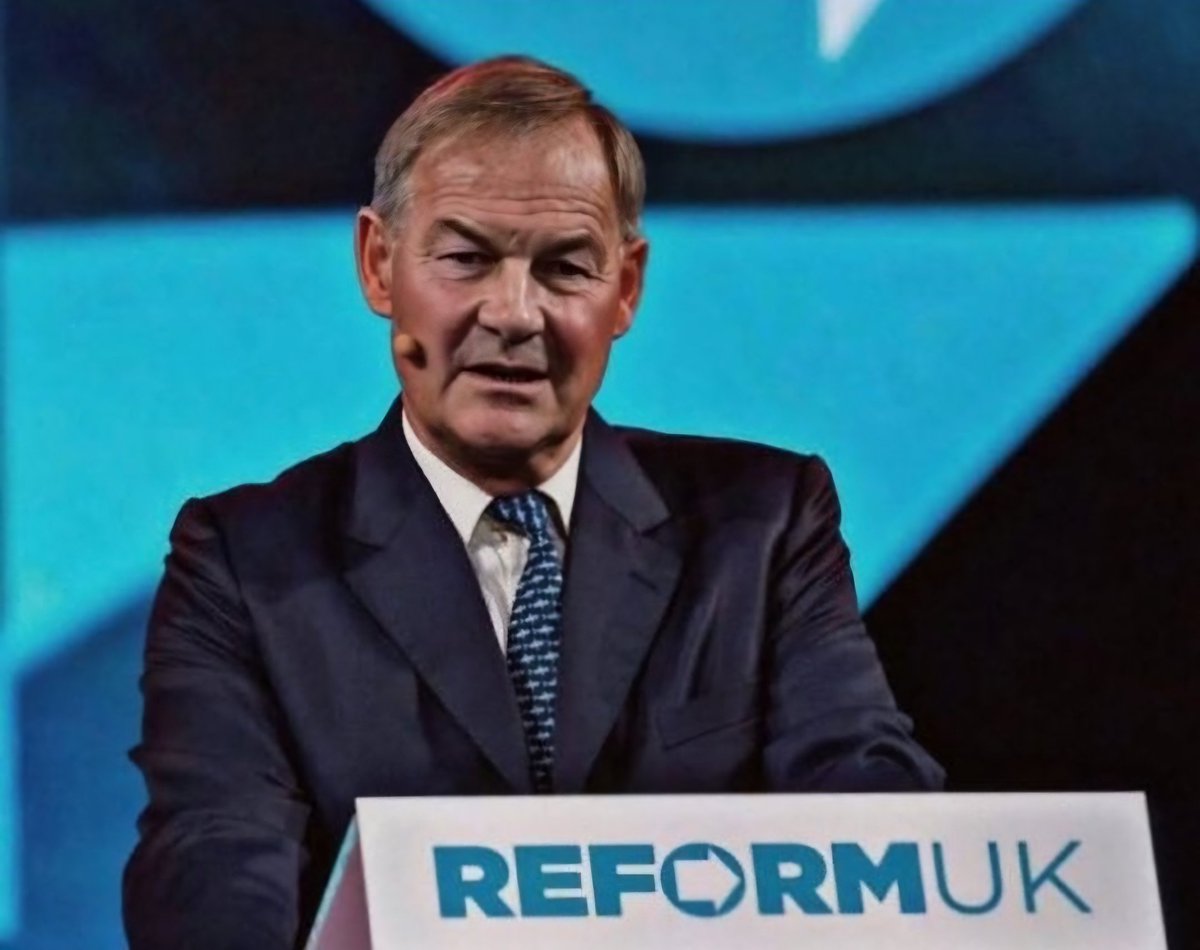The Mental Health Crisis In Ghana: Examining The Causes And Solutions

Table of Contents
Underlying Causes of the Mental Health Crisis in Ghana
The mental health crisis in Ghana is a complex issue stemming from a multitude of interconnected factors. Addressing this crisis requires a deep understanding of these underlying causes.
Socioeconomic Factors
Poverty, unemployment, and inequality are deeply intertwined with mental health outcomes. Limited access to basic necessities like food, shelter, and clean water creates significant stress and vulnerability.
- Limited access to education and healthcare: Lack of education limits opportunities and exacerbates economic hardship, increasing the risk of mental health problems. Inadequate healthcare access means individuals often lack early intervention and treatment.
- High rates of poverty: Financial insecurity, food insecurity, and housing instability are significant stressors contributing to anxiety, depression, and other mental health disorders. The constant struggle for survival can overwhelm individuals, leading to mental health breakdowns.
- Social stigma surrounding mental illness: The pervasive stigma associated with mental illness prevents many Ghanaians from seeking help, leading to delayed treatment and worsening conditions. Fear of judgment and discrimination isolates individuals and hinders recovery.
Cultural and Religious Beliefs
Traditional beliefs and practices in Ghana sometimes hinder the acceptance and treatment of mental illness. Spiritual interpretations of mental health challenges can lead to delayed or inappropriate interventions.
- Stigma associated with mental illness: Cultural norms often stigmatize mental illness, leading to shame, secrecy, and a reluctance to seek professional help. Families may hide mental illness to avoid social ostracism.
- Spiritual interpretations of mental illness: Attributing mental illness to spiritual causes can lead to reliance on traditional healers instead of seeking evidence-based medical care, potentially delaying effective treatment.
- Lack of culturally sensitive mental healthcare services: The absence of culturally adapted mental health services creates a significant barrier for many individuals. Services that don't respect cultural norms and beliefs may be ineffective and even alienating.
Inadequate Healthcare Infrastructure and Resources
A shortage of trained mental health professionals, limited access to mental health facilities, and insufficient funding pose major obstacles to effective mental healthcare delivery in Ghana.
- The ratio of psychiatrists and mental health nurses to the population is alarmingly low: This critical shortage limits the capacity to provide adequate care to those who need it. Long waiting lists and limited appointment availability are common.
- Many rural areas lack access to any mental health services: Geographic barriers and limited transportation options prevent individuals in rural communities from accessing crucial mental healthcare.
- Limited funding restricts the availability of essential medications and therapies: Insufficient funding impacts the quality and availability of treatment options, including medications, psychotherapy, and other evidence-based interventions.
Strategies for Addressing the Mental Health Crisis in Ghana
Tackling the mental health crisis in Ghana requires a multi-pronged strategy that addresses the root causes and strengthens the healthcare system.
Increasing Awareness and Reducing Stigma
Public awareness campaigns are vital to destigmatize mental illness and encourage help-seeking behavior. Education and open conversations are key to dismantling harmful misconceptions.
- Community-based education programs to promote understanding of mental health: These programs can target schools, workplaces, and community centers to educate people about mental health conditions, symptoms, and available resources.
- Collaborations with religious leaders and community influencers to address stigma: Engaging respected figures within communities can help to challenge negative stereotypes and promote acceptance.
- Media campaigns to portray mental illness accurately and sensitively: Responsible media coverage can help to normalize mental health challenges and encourage individuals to seek support without fear of judgment.
Strengthening Healthcare Infrastructure and Workforce
Investing in training more mental health professionals and expanding access to mental health services is essential to ensure adequate care for all Ghanaians.
- Increased funding for mental health services and training programs: Significant investment is needed to support training programs for psychiatrists, psychologists, nurses, and other mental health professionals.
- Establishment of more mental health facilities, particularly in rural areas: Improved access to services requires a geographically dispersed network of mental health facilities, including community-based clinics in rural areas.
- Integration of mental healthcare into primary healthcare services: Integrating mental health services into primary care settings can improve early detection and access to treatment for many individuals.
Promoting Mental Wellbeing through Policy and Legislation
Government policies must prioritize mental health and allocate sufficient resources to address this critical issue.
- National mental health policy that addresses access, quality, and equity: A comprehensive national policy should outline strategies to improve access to quality mental healthcare for all citizens, regardless of their location or socioeconomic status.
- Legislation to protect the rights of individuals with mental illness: Legislation is needed to protect individuals with mental illness from discrimination and ensure their right to receive appropriate care and support.
- Investment in research on mental health issues specific to Ghana: Investing in research will lead to a better understanding of the unique challenges faced by Ghanaians and inform the development of culturally sensitive and effective interventions.
Conclusion
The mental health crisis in Ghana demands a multifaceted approach involving community engagement, healthcare system strengthening, and policy reform. Addressing the underlying socioeconomic factors, challenging cultural beliefs, and increasing investment in mental healthcare are vital steps towards improving the lives of those affected. By working collaboratively, we can create a Ghana where everyone has access to quality mental healthcare and support. Let's work together to alleviate the mental health crisis in Ghana and build a more supportive and inclusive society. We must continue to advocate for improved access to mental healthcare services in Ghana and contribute to a future where mental health is prioritized for all.

Featured Posts
-
 Selena Gomezs High Waisted Power Suit 80s Style Inspiration
May 03, 2025
Selena Gomezs High Waisted Power Suit 80s Style Inspiration
May 03, 2025 -
 L Intelligence Artificielle Un Enjeu De Patriotisme Economique Pour Macron
May 03, 2025
L Intelligence Artificielle Un Enjeu De Patriotisme Economique Pour Macron
May 03, 2025 -
 Police Investigate Mp Rupert Lowe Details Emerge
May 03, 2025
Police Investigate Mp Rupert Lowe Details Emerge
May 03, 2025 -
 Planuojamas Hario Poterio Parkas Sanchajuje 2027 M
May 03, 2025
Planuojamas Hario Poterio Parkas Sanchajuje 2027 M
May 03, 2025 -
 New Play Station Beta Program Announced By Sony
May 03, 2025
New Play Station Beta Program Announced By Sony
May 03, 2025
Latest Posts
-
 Exploring Fleetwood Macs Massive Catalog Why Their Music Remains Popular
May 04, 2025
Exploring Fleetwood Macs Massive Catalog Why Their Music Remains Popular
May 04, 2025 -
 Fleetwood Macs Rumours At 48 How Personal Turmoil Forged A Legendary Album
May 04, 2025
Fleetwood Macs Rumours At 48 How Personal Turmoil Forged A Legendary Album
May 04, 2025 -
 Fleetwood Macs Best Selling Albums A Deep Dive Into Their Extensive Catalog
May 04, 2025
Fleetwood Macs Best Selling Albums A Deep Dive Into Their Extensive Catalog
May 04, 2025 -
 Fleetwood Macs Rumours 48 Years Ago A Broken Band Created A Masterpiece
May 04, 2025
Fleetwood Macs Rumours 48 Years Ago A Broken Band Created A Masterpiece
May 04, 2025 -
 The Enduring Power Of Fleetwood Macs Music Chart Topping Albums And Hits
May 04, 2025
The Enduring Power Of Fleetwood Macs Music Chart Topping Albums And Hits
May 04, 2025
